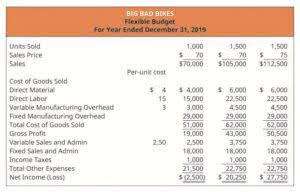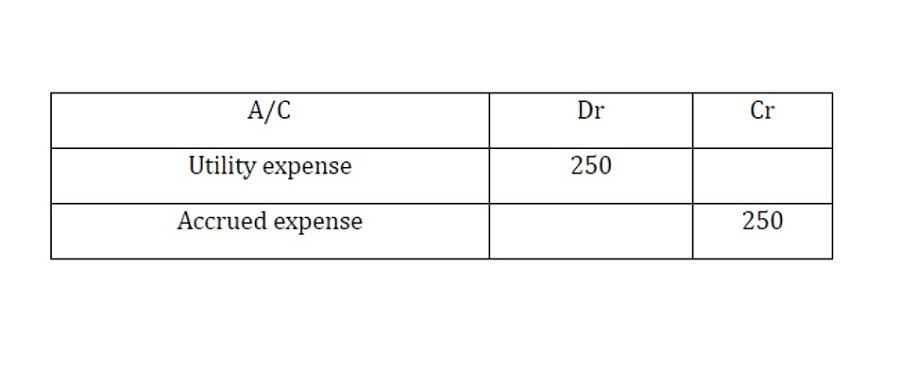אין מוצרים בסל קניות.
Is Prepaid Rent a Current Asset? Is It Debit or Credit

After his journal entry, the balance of prepaid rent will become zero ($5,000 – $2,500 – $2,500) while rent expense increases to $5,000 ($2,500 in January + $2,500 in February). Likewise, there are no changes in total assets because while an asset account which is prepaid rent increases by $5,000, another asset account which is a cash account decreases by $5,000. Prepaid rent is an asset that can be used right away by tenants or businesses. For landlords, rent Outsource Invoicing that has already been paid is a debt until the services (use of the rental property) are provided.

Is Prepaid Rent an Asset or Owner's Equity?

Therefore, no amount is available on which to base the rent calculation. However, under ASC 842, the new lease accounting standard, prepaid rent is now included in the measurement of the ROU asset. Any prepaid rent outstanding as of the transition is included in the measurement of the ROU asset. Subsequent lease accounting under ASC 842 also requires any prepaid amounts to be recorded to the ROU asset. Whereas the income for coming periods will be overstated since no rent expense is recorded.
Accounting for variable/contingent rent
- Most companies (including the ones that want to impress the financial bigwigs) opt for accrual accounting.
- To reflect this increase in an asset, the Prepaid Rent account is debited.
- As soon as you pay for insurance in advance, the payment is recorded as an asset on the balance sheet, specifically as Prepaid Insurance.
- The consistent treatment of prepaid rent in the income statement provides stakeholders with a realistic view of the company’s operating expenses and profitability.
- First, it's helpful to know that the IRS defines "a rent expense" as the amount paid for the use of any property not owned by the entity using the property.
- By understanding the definition and accounting treatment of prepaid rent, businesses can ensure accurate financial reporting and decision-making.
- If the entire amount of prepaid rent were expensed immediately upon payment, it would artificially inflate expenses in the period of payment and understate assets.
Since the prepaid rent has future economic benefits to the company before they get expensed, they are first considered assets. When the benefits are realized by the company, prepaid rent is then recognized as an expense. The balance sheet must accurately reflect this asset to provide a clear picture of the company’s financial position. As time progresses and the rental period elapses, the value of the prepaid rent asset decreases. This decrease is matched with a corresponding rent expense on the income statement, reflecting the usage of the rental space over time. The systematic reduction of the https://snc-lacour.monpreprod.com/2023/07/28/present-value-and-future-value-of-a-single-amount-3/ prepaid rent asset is crucial in matching expenses with the periods in which they are incurred, adhering to the matching principle of accounting.
Accounting for Prepaid Rent
This article clarifies the accounting treatment of prepaid rent, including its classification and how it is recorded in financial statements. The process of accounting for prepaid rent involves specific journal entries that capture the initial transaction and the subsequent monthly recognition of rent expense. These entries are fundamental to maintaining the integrity of financial records and ensuring that the financial statements accurately reflect the company’s economic activities. This ensures that financial statements accurately reflect the true cost of operations for a given period.
How do you account for variable/contingent rent?
- Prepaid rent is exactly what it sounds like—rent you pay before you actually use the space.
- In contrast, revenues represent the income received by an entity against the services provided to clients.
- However, from the landlord’s perspective, the prepaid amount represents a liability until the rental period occurs.
- When a business makes an advance payment for a service or good, this transaction creates a prepaid expense.
- The landlord gets a rent payment ahead of time, but that payment can't be counted as income until the service period starts.
As the rent is recognized as an expense, the asset is decreased, and the rent expense is increased on the income statement. Just like other prepaid expenses (looking at you, prepaid insurance), prepaid rent is recorded as a debit. Because when you make that upfront payment, you’re increasing an asset—specifically, the prepaid rent asset account.
- For the check to reach the landlord and post by the first, the organization writes the check the week before on the 25th.
- This ensures financial statements accurately portray the cost of rent incurred during the period.
- As we can see above journal entries related to the prepaid rent, impact the cash account only when the company paid for the prepaid rent.
- Take a look at the basics of how to account for a rent expense that is paid in advance.
- Cash and bank are current assets and when an entity makes an advance payment of rent, the cash-in-hand balance with an entity reduces.
- Prepaid rent is an asset that can be used right away by tenants or businesses.
- Sometimes it is for buildings, warehouses, and offices occupied by the organization.
A common concern of business owners who do accounting by themselves is whether the prepaid rent is an asset or a liability. Under the cash basis system, the expenses and revenues are not recorded until the cash element is included. Deferred rent usually relates to lease differences over time or straight-line rent expense. It tells you whether rent that has already been paid is an asset, a liability, or an equity. You will also learn how to record it, how it works, and what it means in rental agreements and accounting. We will look at some hypothetical examples on prepaid rent payment and how they are recorded when the payment is made and once the rent has been used up.
- To record this transformation, an adjusting journal entry involves two main components.
- In a scenario with escalating lease payments, the average expense recorded is more than the lower payments at the beginning of the lease term.
- Likewise, without the adjusting entry above, assets are overstated and expenses are understated by the same amount of $2,500 as at January 31, 201.
- Prepaid insurance must be recorded as a prepaid expense when analyzing expenses over time, as seen in Example 4, question 4.
- It is classified as a current asset, meaning it is expected to be consumed or converted into cash within one year or one operating cycle, whichever is longer.
- It occurs when a company pays rent upfront before the corresponding period it covers.
- This expense is categorized as an operating expense, reflecting the cost incurred for the period.
Does prepaid rent affect the income statement?

Therefore, the entry is made by debiting prepaid rent and crediting cash/bank. The treatment of prepaid expenses, unearned revenue, accrued income, and expenses vary in accrual and cash accounting. Yes, when the rent period begins, the prepaid rent is moved from the asset account to the income statement as rent expense. The landlord gets a rent payment ahead of time, but that payment can't be counted as income until the service period starts.
Operating activity represents the cash flow that happens due to the main business activity of the company. Cash inflow arrives from cash collected from sale revenue, cash outflow happens due to the payments related to the cost of goods sold, and other operating expenses. Understand its classification as a debit or credit using core financial principles. Explore the proper handling of prepaid rent in accounting, from balance sheet recognition to financial statement reporting. Generally, variable, or contingent rent, is expensed as incurred according to both legacy accounting and the new accounting standard.
Expense Recognition and Deferred Rent Treatment
It aligns with the accrual basis of accounting and the matching principle. Prepaid rent is rent that’s been paid in advance of the period for which it’s due. Under ASC 842, the concept of prepaid rent does not exist; however, in practice it is common for lessees to make rent payments in advance.
Does Prepaid Rent Affect Net Income?
Deferred rent is a liability (or an asset) that results from the difference between the actual payment to the lessor and the straight-line expense recorded on the lessee’s statements. At transition to ASC 842, deferred rent is included as part of the ROU Asset balance. To recap, we determined the lease liability to is prepaid rent a credit or debit be $65,028 (PV of remaining payment excluding the prepaid Year 1 rent). We then add the prepaid amount of $36,721 to establish the Right-of-use (ROU) Asset balance, which comes out to be $101,749. In essence, there is no such account named “prepaid rent” on the balance sheet under the rules of ASC 842.


